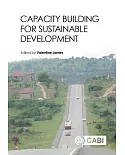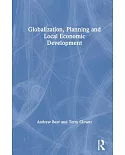Transport corridors support much of the developing countries' trade and are indispensable to the 31 landlocked developing countries. These countries are home to 360 million people, with the
largest concentration is Sub-Saharan Africa. Logistics costs and unreliability of access corridors put these countries at a distinct disadvantage. Traditional approaches have stressed
infrastructure investment and the development of international agreements as the main solutions to improve corridors and facilitate access to markets.
The authors of Connecting Landlocked Developing Countries to Markets present a break-through in the literature by arguing instead that the transit procedures regulating the movement of goods
along the corridors have been poorly designed and implemented. They have discouraged competition and hampered the emergence of high-quality trade-related services. Small traded volumes and the
unfavorable political economy of trade corridors have also constrained changes. Furthermore, many of the problems occur in the transit countries, which also need to find the advantages in
facilitating trade.
Based on new analytical research and case studies, the authors provide insights on what works and does not work, and they offer policy recommendations to address these issues.
Implementation of the recommended conceptual framework and its main components will help landlocked developing countries to be more successful participants in world trade, to their benefit as
well as to that of their transit neighbors.





















